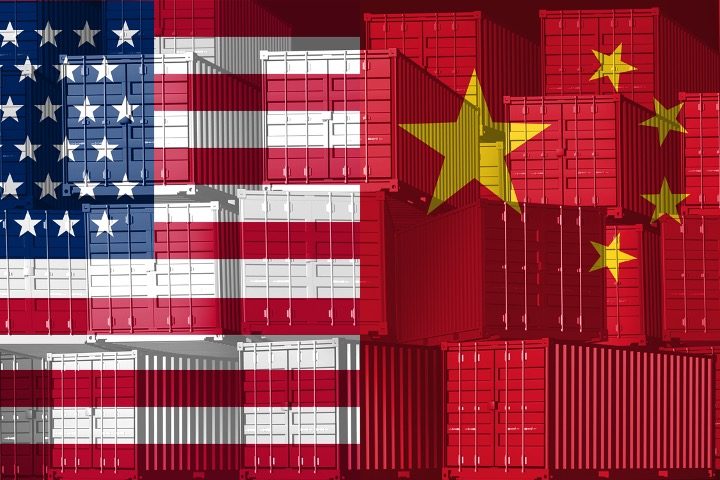
The House Select Committee on the Strategic Competition Between the United States and the Chinese Communist Party (CCP) on Tuesday adopted “policy recommendations in a bipartisan report that outlines a strategy to fundamentally reset the United States’ economic and technological competition with the People’s Republic of China (PRC).”
The recommendations in the report are the result of the committee’s work over the past year investigating the “CCP’s decades-long campaign of economic and technological warfare,” according to a press release.
“Never before has the United States faced a geopolitical adversary with which it is so economically interconnected. Addressing this novel contest will require a fundamental reevaluation of U.S. policy towards economic engagement with the PRC as well as new tools to address the PRC’s campaign of economic aggression,” stated the report.
The 53-page report, titled Reset, Prevent, Build: A Strategy to Win America’s Economic Competition with the Chinese Communist Party, is divided into three pillars focused on correcting 30 years of misguided government policy.
The first pillar focuses on resetting the terms of the economic relationship the U.S. has with the PRC while recognizing the “serious risks of economically relying on a strategic competitor that harnesses the power of the Party-State to compete economically.”
The key finding: The PRC’s economic system is incompatible with the World Trade Organization (WTO) and undermines U.S. economic security. As noted in the report, the “CCP has pursued a multi-decade campaign of economic aggression, fulfilling General Secretary Xi’s directive to be the ‘gravediggers of capitalism.’”
The committee offered numerous recommendations to put an end to the CCP’s economic aggression, including designating a “coordinating office that is responsible for assessing and developing an economic security strategy” to combat the CCP’s ongoing economic policies.
According to the report, legislation could be modeled on the bipartisan SHIELD Act (H.R. 5703), which would “establish an Office of Economic and Security Preparedness and Resilience,” and could direct this office to “formulate a U.S. Economic Security Strategy. The strategy should assess on an annual basis the risks to the resilience of U.S. supply chains, with an emphasis on critical dependencies that are likely to be weaponized by the PRC or other foreign adversaries for geopolitical purposes, such as a potential conflict in the Indo-Pacific, and strategies to defuse threats without unnecessarily undermining economic growth or damaging American security….”
The first pillar also seeks to “prevent U.S. companies from being driven out of the U.S. market by market-distorting PRC products.” To deter “PRC economic coercion against American companies,” the Center for Strategic and International Studies (CSIS) shared,
Report recommendations include implementing Section 232 remedies to impose additional tariffs on products from countries of concern and other third countries. However, the report recommends limiting the applicability of Section 232 tariffs to adversarial countries, while limiting the use of these tariffs on allies and partners. Doing so “would allow Commerce to focus its efforts on imports from a country of concern, including through third countries while encouraging, rather than undermining, work with U.S. partners and allies.”
According to the committee report, Section 232 of the Trade Expansion Act allows the Commerce Department “to review the impact of imports on national security.”
The second pillar seeks to “stem the flow of capital and technologies that can fuel China’s military modernization and facilitate human rights abuses.” The CSIS summarized that this pillar focused “primarily on export control and investment screening tools, noting that export controls and investment tools have been slow to adapt to today’s threat environment. It calls for the significant expansion of Committee on Foreign Investment in the United States (CFIUS) authorities and for bolstering the Biden administration’s executive order on outbound investments, arguing that investment restrictions should be allowed on a sectoral basis.”
While the first two pillars of the offered strategy focused on defensive actions, according to the report, “the third pillar of the report focuses on offensive trade and technology measures.” The committee found that “a united, multinational effort to incentivize, invest in, and jointly restore our economic security is overdue.”
The third pillar was broken down into six key recommendations, as follows:
- Invest in American innovation and strategic sectors and create tax incentives to encourage private U.S. investment.
- Execute a talent strategy to promote research and development in critical and emerging technologies and strengthen the defense industrial base.
- Develop a positive economic agenda to encourage ally and partner countries to work collaboratively with the United States.
- Create transparency into U.S. supply chain dependency for critical minerals and develop a package of investments, regulatory reforms, and tax incentives to reduce that dependency.
- Authorize transparency measures, trade authorities, and reforms to reduce U.S. dependency on the PRC for pharmaceutical supply chains.
- Expand the U.S. toolkit for global development and strategic investments to counter the Belt and Road Initiative.
In the report’s conclusion, the committee declared that “the United States now has a choice: accept Beijing’s vision of America as its economic vassal or stand up for our security, values, and prosperity. The Select Committee believes these recommendations, if urgently adopted, would reset the terms of the U.S.-PRC economic relationship, counter the PRC’s economic aggression, and promote long-term prosperity and resilience.”




